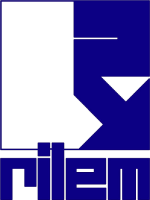Publications
Pro121
Early-age cracking tendency of alkali-activated slag binders compared to ordinary portland cement
Author(s): Farah Rifai, Aveline Darquennes, Benoist Muzeau, Lavinia Stefan, Farid Benboudjema
Paper category: Proceedings
Book title: SynerCrete’18: Interdisciplinary Approaches for Cement-based Materials and Structural Concrete: Synergizing Expertise and Bridging Scales of Space and Time Vol. 1 & 2
Editor(s): Miguel Azenha, Dirk Schlicke, Farid Benboudjema, Agnieszka Jędrzejewska
ISBN: 978-2-35158-202-2
e-ISBN: 978-2-35158-203-9
Publisher: RILEM Publications SARL
Publication year: 2018
Pages: 413-418
Total Pages: 6
Language : English
Abstract: Alkali-activated binders are increasingly used in civil engineering for different structural applications. Their thermo-chemo-mechanical behaviour (activation process, hydration reactions and mechanical properties’ evolution) is investigated in the literature. However, few studies addressing their cracking tendency can be found. This paper focuses on the cracking risks induced by thermal and delayed strains’ restriction, at materials’ early age. First, the results of an experimental campaign comparing the early-age behaviour of an alkali-activated slag mortar to that of an OPC based mortar are discussed. Second, a simplified approach allowing comparing the cracking tendency of both materials is proposed. The alkali-activated mortar undergoes autogenous shrinkage strains higher then OPC mortar and showing an increase even at long term. However, its basic creep strains are more important than OPC mortar, tested in the same conditions. This implies a higher capacity of stress relaxation for the alkali-activated slag mortar. Regarding the evolution of mechanical properties, Young modulus and tensile strengths of the alkali-activated mortar are lower of those of OPC based mortar at all ages. A simplified cracking index comparison applied at this stage of study shows comparable cracking risks of both materials at 7 days, higher risks for alkali-activated slag mortar at 28 days.
Online publication : 2018
Publication type : full_text
Public price (Euros) : 0.00
>> You must be connected to view the paper. You can register for free if you are not a member


